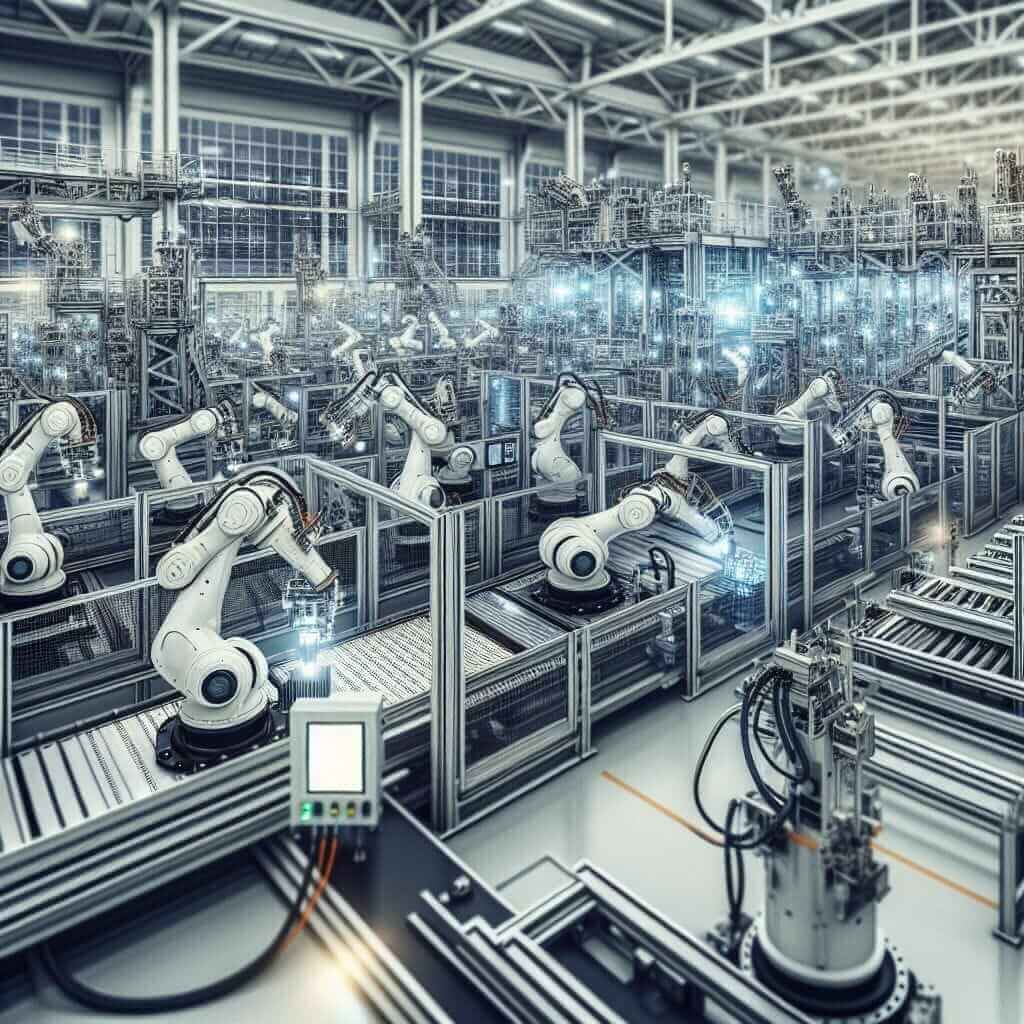The IELTS Reading test is one of the most challenging parts of the IELTS exam. It requires not only a strong understanding of English but also the ability to quickly assimilate and analyze information from different sources. One of the trending topics in recent years is the “Economic impacts of artificial intelligence on different industries.” Given the relevance and frequency of this topic in daily news and technological advancements, it is highly likely to appear in future IELTS tests.
Reading Passage: Economic Impacts of Artificial Intelligence on Different Industries
Passage
Artificial Intelligence (AI) has rapidly emerged as a transformative technology with impactful consequences across various sectors. From healthcare and manufacturing to finance and retail, AI has introduced efficiency, cost-reduction, and innovation.
In the healthcare industry, AI-powered diagnostic tools and robotics have revolutionized medical procedures. These technologies facilitate early disease detection, significantly increasing the chances of successful treatment. Furthermore, AI algorithms analyze vast datasets of patient histories to offer personalized medicine, enhancing the quality of patient care.
The manufacturing industry has witnessed AI’s impact through automation and predictive maintenance. Automated robotics streamline the production process, reducing labor costs and minimizing human error. Predictive maintenance uses AI to forecast equipment failures and service needs, thereby avoiding costly downtime.

Financial institutions employ AI for fraud detection, risk management, and automated trading systems. AI algorithms analyze real-time transaction data to identify fraudulent activities, safeguarding customers and banks alike. In trading, AI models predict market trends, enabling faster and more profitable decision-making.
The retail sector benefits from AI through personalized marketing and efficient supply chain management. AI analyzes consumer behavior to create targeted advertisements, improving customer experience and sales. Furthermore, AI-driven supply chain management systems enhance inventory accuracy and logistics efficiency.
Despite these advancements, AI’s integration raises concerns about employment and economic disparities. The automation of tasks previously performed by humans might lead to job displacement. Economic inequalities could be exacerbated as higher-income groups, who own AI technologies, reap more benefits compared to lower-income groups.
Questions
Question Type: Multiple Choice
-
What is one major advantage of AI in healthcare?
- A. Reduced need for medical professionals
- B. Early disease detection
- C. Higher medical costs
- D. Increased patient numbers
-
How does AI benefit the manufacturing industry?
- A. Reduces need for raw materials
- B. Streamlines production and predicts equipment failures
- C. Increases human labor
- D. Offers cheaper healthcare solutions
Question Type: True/False/Not Given
- AI in financial institutions only benefits the bank employees.
- True
- False
- Not Given
Question Type: Matching Information
-
Match the technological impact with its industry:
- A. Automated trading systems
- B. Personalized advertisements
- C. Predictive maintenance
- D. Personalized medicine
i. Manufacturing
ii. Retail
iii. Finance
iv. Healthcare
Answer Key
-
B. Early disease detection
Explanation: The passage mentions that AI-powered diagnostic tools facilitate early disease detection, significantly increasing the chances of successful treatment. -
B. Streamlines production and predicts equipment failures
Explanation: The passage states that automated robotics streamline the production process and predictive maintenance forecasts equipment failures, reducing labor costs and minimizing human error. -
False
Explanation: The passage notes that AI in financial institutions benefits both customers and banks by safeguarding against fraudulent activities and enabling profitable decision-making. -
i. C. Predictive maintenance – Manufacturing
ii. B. Personalized advertisements – Retail
iii. A. Automated trading systems – Finance
iv. D. Personalized medicine – Healthcare
Common Mistakes
- Failure to Identify Key Information: Many students struggle to identify key information quickly. Practicing skimming and scanning can help.
- Misinterpreting the Question: Ensure you understand the question type and what it is asking for.
- Vocabulary Misunderstanding: Familiarize yourself with the specific vocabulary related to the topic to avoid confusion.
Vocabulary
-
Diagnostic (adj)
Pronunciation: /daɪˈægnəstɪk/
Meaning: Relating to the identification of the nature of an illness or other problem by examining the symptoms.
Example: AI-powered diagnostic tools have revolutionized medical procedures. -
Automation (n)
Pronunciation: /ˌɔːtəˈmeɪʃən/
Meaning: The use of machines and technology to make processes operate on their own without human intervention.
Example: Automation has significantly reduced labor costs in manufacturing.
Grammar
- Passive Voice: Used to emphasize the action rather than the doer.
- Example: “AI algorithms are used to forecast equipment failures.”
- Conditionals: Often used to express possible outcomes.
- Example: “If AI continues to advance, it will further transform industries.”
Conclusion
To excel in the IELTS Reading test, you must practice regularly with a variety of texts on current and relevant topics like AI’s economic impact. Recognize different question types and develop strategies to tackle them efficiently. Don’t forget to enhance your vocabulary and understanding of complex grammatical structures.
For more practice, check out our related articles:
- Economic impacts of artificial intelligence on job markets
- The impact of digital innovation on traditional industries
- The effects of technological change on employment
- Social implications of automation in the workplace
- The impact of technological innovation on healthcare access
Happy studying, and good luck with your IELTS preparation!